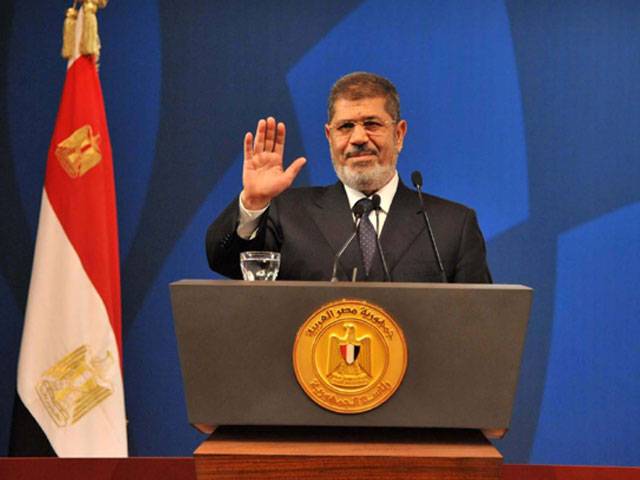CAIRO - A draft law regulating Egyptian civil society groups has become a barometer of the Islamist government’s commitment to the ideals of the democratic uprising that brought it to power, with the text raising concerns both at home and abroad.
President Mohamed Mursi, who referred the bill to the Islamist-dominated senate on Wednesday, pledged that he “does not aspire to control civil society,” in a departure from his overthrown predecessor Hosni Mubarak’s strongman tactics.
NGOs in Egypt have denounced the bill, which regulates the funding and activities of non-governmental organisations, going so far as to condemn it as “aggression against civil society”.
Western powers such as the United States, a major funder of NGOs in Egypt, are closely monitoring the issue.
In a statement, the US State Department said it was “concerned” by the civil society draft law which “imposes significant government controls and restrictions on the activities and funding of civic groups”.
“The United States believes the proposed law is likely to impede Egyptians’ ability to form civic groups that are critical to advancing freedoms, supporting democracy, and acting as appropriate checks on the government,” it said.
Before Mubarak’s ouster in early 2011, many rights groups failed to secure operating licences, and their activities were monitored by the then all-powerful security services.
The interim military government which then took power ordered raids on the offices of foreign NGOs in which Americans were among staff members referred to trial on charges of receiving illicit foreign funds.
The raids dealt a serious blow to relations between the military and Washington, its main foreign aid donor.
Mursi, once a political prisoner under Mubarak and leader of the formerly banned Muslim Brotherhood, has insisted that he must reform a corrupt inherited bureaucracy and instil transparency.
His aides say that the NGO bill, which will be discussed in the senate, was drafted in that spirit. But many NGOs, already wary of the Islamist president, say it is an attempt to assert control over the foreign funding of projects such as human rights advocacy.
The draft law will create a steering committee, headed by the social affairs minister, that must approve requests for foreign funding.
It will be able to turn down the requests from NGOs if it deems a project illegal. Foreign funding, for example, may not be used for political campaigning.
The courts will have the final say in any dispute.
The draft law would “curb the right to freedom of association through legal restrictions even more severe than those imposed by the Mubarak regime,” said a statement signed by 40 NGOs.
Previous drafts of the law had given the security services oversight of NGOs.
The US-based Human Rights Watch group said the presidential draft contained some improvements over previous versions.
But “it would allow the government and its security agencies to arbitrarily restrict the funding and operation of independent groups,” the watchdog said in a statement.
The presidency has denied that the bill would allow security services control over civil society groups.
“I confirm this draft law completely removes the security role,” Wael Zoghby, who helped compose the bill, told a news conference last week.
Nermeen Mohamed, a presidential aide who also helped to draft the bill, says its current incarnation is the product of more than three months of consultations with civil society groups.
“The consultation process resulted in substantial differences between the Presidency’s draft and other drafts,” she wrote in a blog post, referring to previous proposals.
A presidential aide said in a briefing that the minister who heads the steering committee that decided on foreign funding may choose other members as he sees fit.
Civil society groups themselves will also be represented on the committee.
Friday, April 19, 2024
NGO law becomes test for Egypt’s Mursi

Stock market loses 43 points
April 19, 2024
Special tasting event held at Fujiyama, Japanese restaurant
April 19, 2024
LSE’s annual conference on management of Pak economy held
April 19, 2024
Hepatitis Challenge
April 18, 2024
IMF Predictions
April 18, 2024
Wheat War
April 18, 2024
Rail Revival
April 17, 2024
Addressing Climate Change
April 17, 2024
Justice denied
April 18, 2024
AI dilemmas unveiled
April 18, 2024
Tax tangle
April 18, 2024
Workforce inequality
April 17, 2024
New partnerships
April 17, 2024
ePaper - Nawaiwaqt
Advertisement
Nawaiwaqt Group | Copyright © 2024





